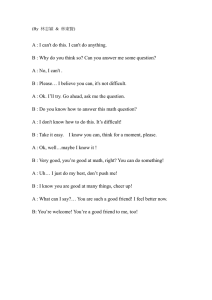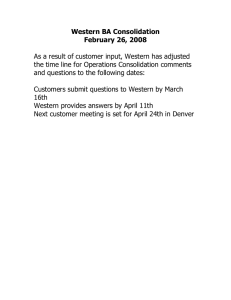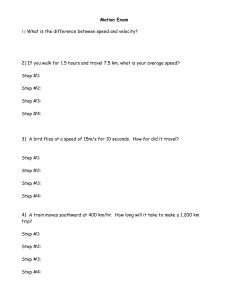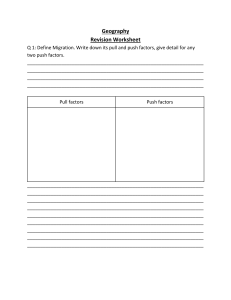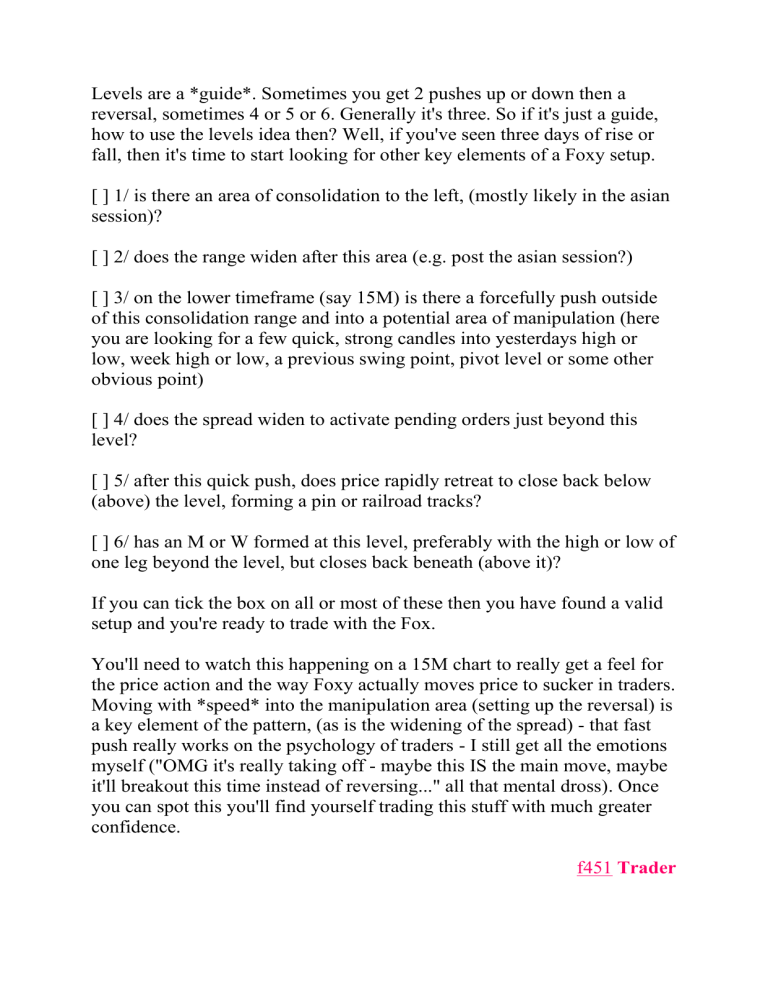
Levels are a *guide*. Sometimes you get 2 pushes up or down then a reversal, sometimes 4 or 5 or 6. Generally it's three. So if it's just a guide, how to use the levels idea then? Well, if you've seen three days of rise or fall, then it's time to start looking for other key elements of a Foxy setup. [ ] 1/ is there an area of consolidation to the left, (mostly likely in the asian session)? [ ] 2/ does the range widen after this area (e.g. post the asian session?) [ ] 3/ on the lower timeframe (say 15M) is there a forcefully push outside of this consolidation range and into a potential area of manipulation (here you are looking for a few quick, strong candles into yesterdays high or low, week high or low, a previous swing point, pivot level or some other obvious point) [ ] 4/ does the spread widen to activate pending orders just beyond this level? [ ] 5/ after this quick push, does price rapidly retreat to close back below (above) the level, forming a pin or railroad tracks? [ ] 6/ has an M or W formed at this level, preferably with the high or low of one leg beyond the level, but closes back beneath (above it)? If you can tick the box on all or most of these then you have found a valid setup and you're ready to trade with the Fox. You'll need to watch this happening on a 15M chart to really get a feel for the price action and the way Foxy actually moves price to sucker in traders. Moving with *speed* into the manipulation area (setting up the reversal) is a key element of the pattern, (as is the widening of the spread) - that fast push really works on the psychology of traders - I still get all the emotions myself ("OMG it's really taking off - maybe this IS the main move, maybe it'll breakout this time instead of reversing..." all that mental dross). Once you can spot this you'll find yourself trading this stuff with much greater confidence. f451 Trader
